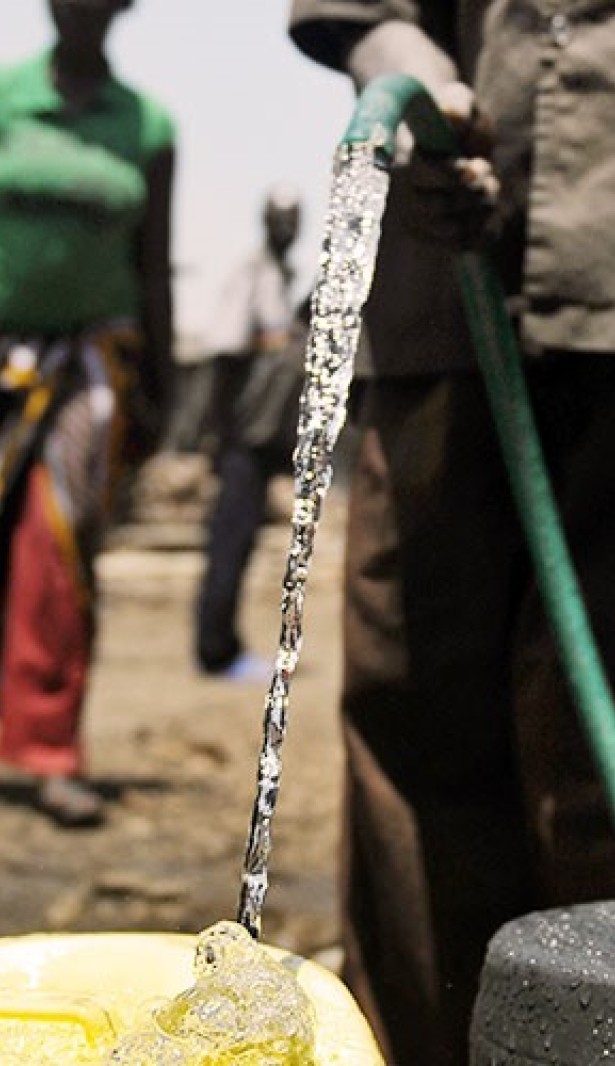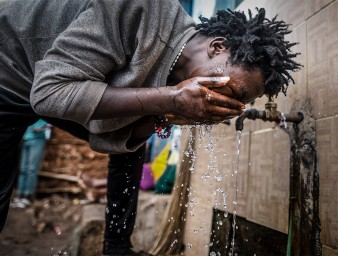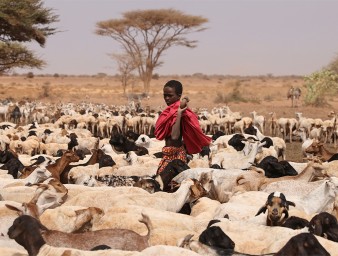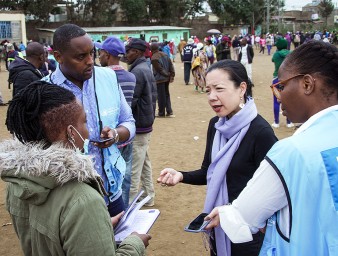Kenya’s informal settlements need safe water to survive COVID-19
06 April 2020
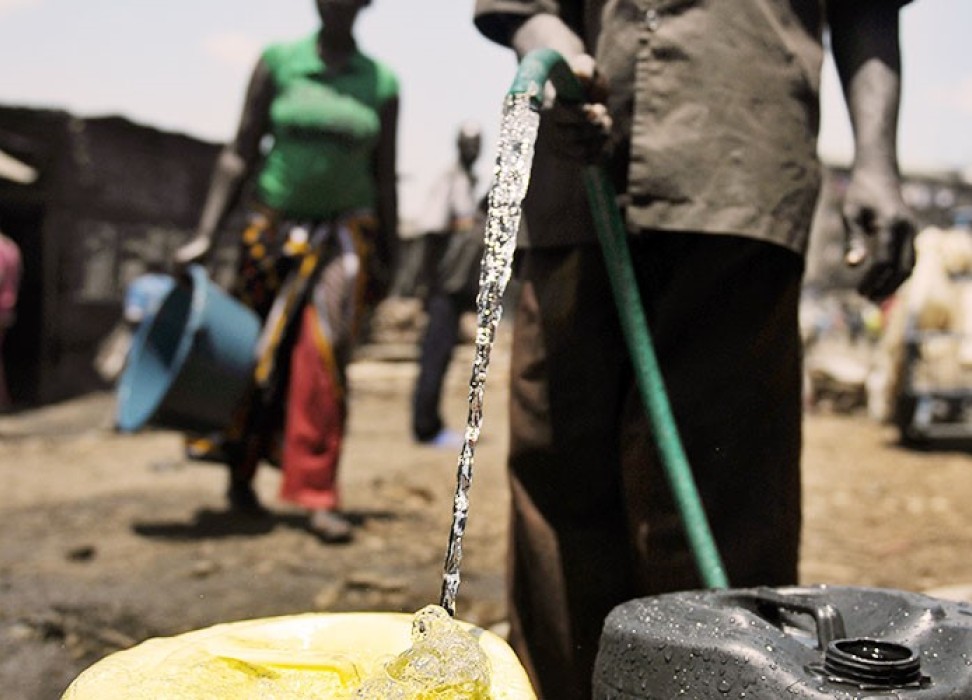
Handwashing is a key measure to try to limit the spread of COVID-19. However, for people living in informal settlements in urban centres in Kenya, access to safe and affordable water remains a daily challenge
At the end of 2019, UN Human Rights undertook a pilot assessment of the enjoyment of the right to water in Kenya, focusing on informal settlements in urban centres where there are deep inequalities. The right to water is recognised as being essential for the full enjoyment of life and all human rights. It is defined as the right of everyone to sufficient, safe, acceptable and physically accessible water for personal and domestic uses.
Sustainable Development Goal 6 (SDG 6) aims to achieve universal and equitable access to safe and affordable drinking water by 2030. Yet globally, as the UN-Water’s World Water Development Report has highlighted, billions still lack safe water and sanitation facilities and people are being left behind because of discrimination based on gender, ethnicity, culture and socioeconomic status, among others.
The right of all Kenyans to safe and quality water in adequate quantities is enshrined in their Constitution, however, the survey revealed that while urban agglomerations generally have better access to water than rural areas, inequalities in access and affordability are acute for people living in informal settlements.
Handwashing remains a challenge
Kenya has a population of 47.5 million and about 60 per cent of its urban population live in informal settlements, mostly in Nairobi, Mombasa and Kisumu.
With the confirmation of the first case of COVID-19 in Kenya in mid-March 2020, following in the footsteps of the majority of countries across the globe facing the pandemic and the recommendations of WHO, the Government urged the population to adhere to the organization’s directives on handwashing, hygiene and physical distancing. Yet it is difficult to implement these prevention measures in informal settlements where there is limited access to water, no sanitation and physical distancing is nearly impossible.
Only a minority of households in informal settlements have access to the public water supply, which is less costly. In informal settlements, water supply has been privatised by ‘cartels’ and many residents rely on private water vendors, particularly during the dry season.
Water commonly costs less per litre in urban middle class neighbourhoods - where there is piped water - than in informal settlements - where the majority rely on water vendors. For example, the price of piped water in Nairobi is in the range of 34-53 Kenyan Shillings (USD 0.34-0.53) per cubic metre (1000 litres), compared to 10-50 Kenyan Shillings for a 20 litre jerrycan in informal settlements.
The majority of respondents spend over three per cent of monthly household income on water – which is the international standard for affordability. Considering that residents of informal settlements pay up to 50 times the price of water per litre than middle class households, affording more water for frequent handwashing presents an economic challenge.
Further, 35 per cent of respondents to the survey indicated that it took them more that 30 minutes to access water because there are few water points where they live and they have to travel long distances to fetch water. Respondents also indicated a high incidence of water-borne diseases such as cholera in their communities, as a result of contamination because water and sewerage lines are in poor condition.
Many security-related concerns were raised during the survey, mostly by women who sometimes have to pay people to provide security for them when they collect water after dark. “During the daytime, it is really hard because so many people want water, so I usually prefer to fetch water at night. But it’s not that safe because people get robbed,” said one respondent. Others pointed out increased levels of crime when they have to leave their homes unattended to travel long distances to collect water at night.
The right to water, “a question of life and death” according to grassroots defenders
“The Government needs to know that having clean water is our right. They provide clean water to State House so they should also provide clean water to the people of Mathare. We are not lesser people,” said Njeri Mwangi of the Mathare Social Justice Centre.
To implement the survey project, UN Human Rights partnered with a network of 24 Social Justice Centres (SJCs) in Nairobi, Kisumu and Coastal regions. These community-based centres are critical in giving a voice to disadvantaged populations and marginalized groups to illustrate inequalities they face in accessing water, expressing their priorities and shaping the implementation of SDG 6 at the grassroots level.
Since 2017, UN Human Rights has engaged with these Social Justice Centres in Kenya and raised the profile of their work and the human rights issues affecting the urban poor in informal settlements. The project was another opportunity to support these Centres and build the capacity of young grassroots human rights defenders.
“Right now, access to water is not just a basic right, but a question of life and death in the informal settlements, if we are to win this war against the COVID-19 pandemic,” said Wilfred Olal, the national convenor of the Social Justice Centres Working Group. Gacheke Gachihi, coordinator of the Mathare Social Justice Centre, underscored the urgency, saying that a major social emergency was looming. “The threat of the coronavirus is a disaster for the majority of people living in settlements, who have no water, no sanitation and no basic services.” The Social Justice Centres have called on the Government to ensure public water supply to informal settlements.
The UN supports Kenya’s COVID-19 response
Following the analysis of the results of the survey, UN Human Rights made a set of recommendations to national and county governments to reach the targets of SDG 6 for people living in informal settlements and vulnerable communities in Kenya.
These include investing in extending the availability and accessibility of public water supply to informal settlements and vulnerable communities; putting in place regulatory frameworks to ensure the affordability of safe drinking water; investing in water and sanitation infrastructure, noting the close correlation between the rights to water and sanitation, and the right to health.
“The links between the right to water and the right to health could not be clearer at this moment, as Kenya battles the spread of COVID-19. Swift action to ensure access to water will save lives,” said Li Fung, Senior Human Rights Adviser at the Office of the UN Resident Coordinator in Kenya.
Under the leadership of the UN Resident Coordinator, the UN Country Team in Kenya has partnered with the Government to support the COVID-19 response, including in the water and sanitation sector. The Ministry of Water has installed close to 500 handwashing points in Nairobi, including 56 in informal settlements; and the UN has provided soap for distribution and is working to increase water supply to 30,000 people in five informal settlements.
UN Human Rights is continuing its partnership with the Social Justice Centres to monitor the human rights impact of the COVID-19 crisis in informal settlements, and orient response and prevention measures to address the range of risks for vulnerable communities and groups.
6 April 2020
